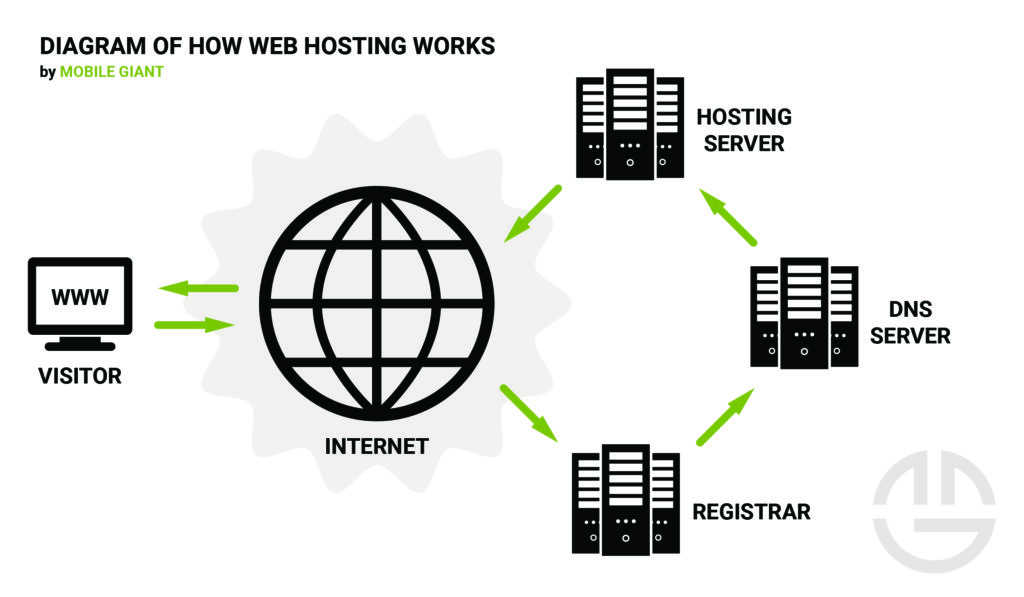
If you’re looking to build a website for your business, you’ll need to learn a little bit about hosting. Hosting refers to the practice of hosting a website or application on a server, which can be accessed over the internet. When you visit a website, you are accessing files and resources that are stored on a server. The server is responsible for serving those files and resources to you when you request them.
There are different types of hosting available, including shared hosting, VPS hosting, dedicated hosting, and cloud hosting. Each type of hosting has its own set of features and benefits, and the right type of hosting for you will depend on your specific needs.
For example, shared hosting is a budget-friendly option that is suitable for small websites with low traffic. VPS hosting is a step up from shared hosting and offers more resources and flexibility. Dedicated hosting is the most expensive option, but it gives you the most control over your server and is ideal for large websites with high traffic. Cloud hosting is a newer option that uses a network of servers to host websites and applications, providing scalability and reliability.
For most businesses starting out, a shared hosting plan is a good start. You can always upgrade at a later time. This also allows you to keep your web cost to a minimum until you get the ball rolling.
What is Web Hosting?
Web hosting is a service that allows individuals and organizations to make their website accessible on the internet. The service typically includes providing server space for the website, as well as managing the technical aspects of making the website accessible, such as ensuring that the website is available to visitors and that it loads quickly and reliably.
All websites on the Internet need web hosting. Hosting providers may also offer additional services such as domain name registration and email hosting.
Here is a List of Hosting Providers We Recommend
Siteground
www.siteground.com
WPX Hosting
www.wpx.net
Cloudways
www.cloudways.com
Hostinger
www.hostinger.com
A2 Hosting
www.a2hosting.com

How Does Web Hosting Work?
Web hosting works by providing server space for a website, as well as managing the technical aspects of making the website accessible on the internet. The hosting provider will typically have servers in a data center that are connected to the internet, and they will provide a certain amount of storage space and bandwidth for a website on one of these servers.
When someone types in a web address (such as www.yourcompany.com) into their web browser, the browser sends a request to the server where the website is hosted. The server then sends back the files for the website, which are then displayed in the browser.
Additionally, a web server software such as Apache or Nginx is used to handle the request from the browser, and a scripting language such as PHP or Python is used to process the dynamic content of the website.
The hosting provider is responsible for maintaining the servers, ensuring that they are secure and reliable, and providing technical support to customers if needed. They also provides the IP address for the website and DNS service for the website so the website can be accessible using the domain name.


